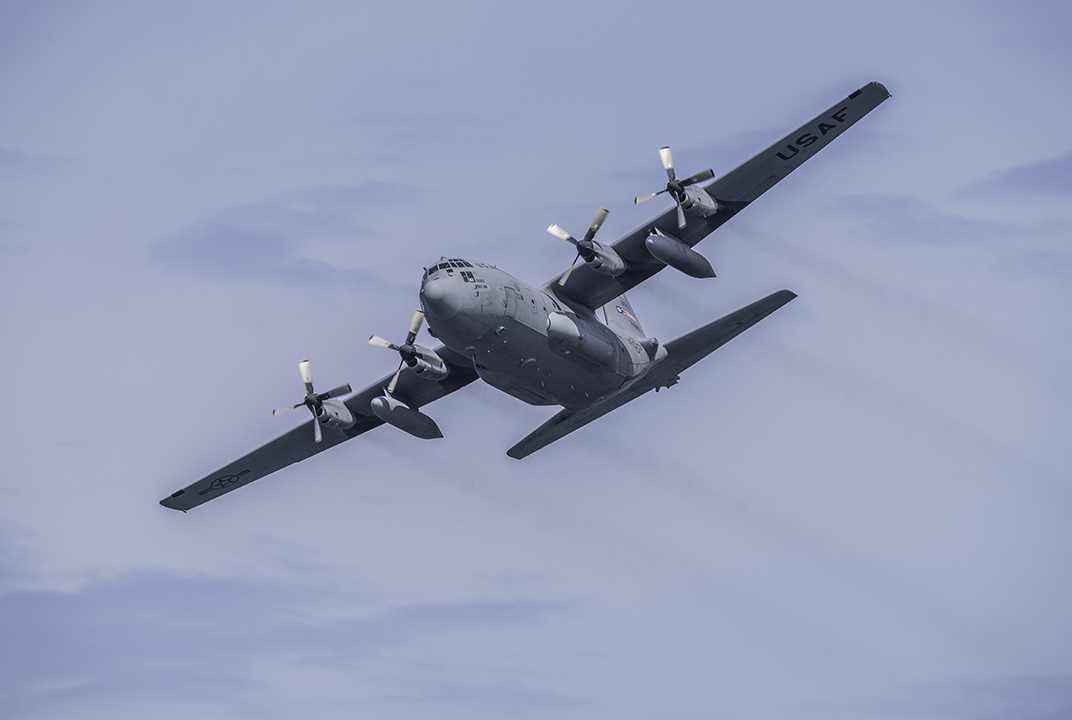Insight | The State of Space 2019: The next era of space exploration is here
The State of Space 2019: The next era of space exploration is here
Government
Inmarsat's Rebecca Cowen-Hirsch shares her thoughts on why it's an incredible time to be involved in the space industry following the State of Space symposium hosted by the Space Foundation.
It is an incredible time to be involved with space. Fifty years after the Apollo program, we are transitioning to a commercially-led, more internationally collaborative mission to tap the potential of the next frontier.
I was proud to be part of a recent panel exploring the many opportunities, as well as some challenges, at the State of Space symposium hosted by the Space Foundation. Its CEO and space industry veteran Tom Zelibor delivered a motivating keynote address that touched on many extraordinary highlights from 2018: 114 launches from nearly a dozen countries; the debut of the Falcon Heavy rocket; the suborbital flight of Virgin Galatic’s SpaceShipTwo; and the first look below the surface of Mars. He provided insights into the new programs the Foundation has underway to excite and create a more “space-aware and space-invested” public.
Tom also laid out three core challenges that he believes need to be tackled to keep the industry moving forward: the best way to grow the Space Force, invigorating the competition that comes from space, and the need to better translate why all of this matters to the public at large. We need to tell the story of the tremendous economic opportunity: what the transition from government-led to commercially-led space development offers.
Tom’s insights paved the way for our lively panel discussion that covered a broad range of topics with direct bearing on the space industry and its diversity – in talent, roles and cross-border government-industry cooperation.
Finding qualified STEM workers is a challenge across many sectors; space is no different. While there is good talent currently available, we need to inspire and train new generations of explorers. It is imperative to increase our priority on STEM education, and seed the dream of space with young minds. Beyond the rocket science, the space sector needs people skilled in business. This capital-intensive market can only thrive if smart people have the acumen to run businesses that are sustainable and competitive. New and innovative business models may be required to develop new or modernize our offerings.
This highlights the vast economic opportunity space presents. Bank of America Merrill Lynch sees the space industry growing to $2.7 trillion in 30 years. Satellite is already becoming part of the mainstream and this trend is only set to continue as the need for ubiquitous connectivity grows and the number of connected devices climbs exponentially. There are untapped opportunities and new applications that we cannot yet envision – like conducting drug research in space, long range medicine, hydroponic agriculture or new propulsion systems – through which the size of the market and its disruption potential are not yet knowable.
Artificial Intelligence will have a dramatic impact, as processing massive amounts of data will be critical for thorough space situational awareness. Whereas in the past we regarded things like satellites as expendable, we will now see them as repairable and reusable.
However, with the increase in satellite use, it will be incumbent upon us to have clearly defined, understood and accepted norms of behavior that ensure our ability to operate freely through space. This will require a more comprehensive approach to space traffic management. The President’s plan to usher in the Space Force as the sixth branch of the military by 2020 reflects the need to ensure access to and protection of space as a national economic and security priority. Just raising the issue is sparking national and international discourse about critical aspects of space exploration and development, such as threats, behavioral norms and freedom of access.
In order to meet the future demand, there needs to be a focus on development and technology innovation to achieve the aim of a completely integrated SATCOM architecture. In my opinion, it is critical for the government to engage with industry to leverage commercial offerings that exist today – and look at how to develop capabilities that are positioned for tomorrow, rapidly. These commercial relationships that enable the Department of Defense to quickly embrace innovative technologies would bring significant opportunities and continue driving towards a fully integrated architecture.
There are other trends on the horizon, and how we employ space will be different and exciting! We are at an inflection point, and this rocket is about to launch!
About the author
Rebecca M. Cowen-Hirsch is Senior Vice President for Government Strategy and Policy for Inmarsat Government, based in Washington. Ms. Cowen-Hirsch brings 25 years of defense, aerospace, and executive leadership experience to Inmarsat. As a decorated member of the Senior Executive Service (SES) in the U.S. Department of Defense, she served as the Program Executive Officer for SATCOM, Teleport and Services at the Defense Information Systems Agency (DISA) and in several key SES executive positions including the first Vice Component Acquisition Executive for DISA, with executive management responsibility for the acquisition oversight and horizontal integration of DISA’s products, services, and programs. Ms Cowen-Hirsch established the Defense Spectrum Office, serving as its first Director where her responsibilities included the development of national security spectrum strategic plans and policy, and national and international negotiation of defense spectrum issues. Her broad defense career ranged from systems engineering, experimental flight test, program management, spectrum management, and a wide range of executive leadership positions. Ms. Cowen-Hirsch was a rated experimental flight test engineer; was the first female civilian Mission Commander for the Advanced Range Instrumentation Aircraft (ARIA) mission, and was the recipient of an Exemplary Service Medal for her years of selfless service to the Department of Defense. Ms Cowen-Hirsch has a Bachelor of Science Degree in Electrical Engineering, conducted post-graduate studies in Engineering Management, and is a graduate of the University of Tennessee Space Institute Experimental Flight Test Program; the DoD’s Acquisition Management Program; and the Cambridge Senior Executive Leadership Program.


